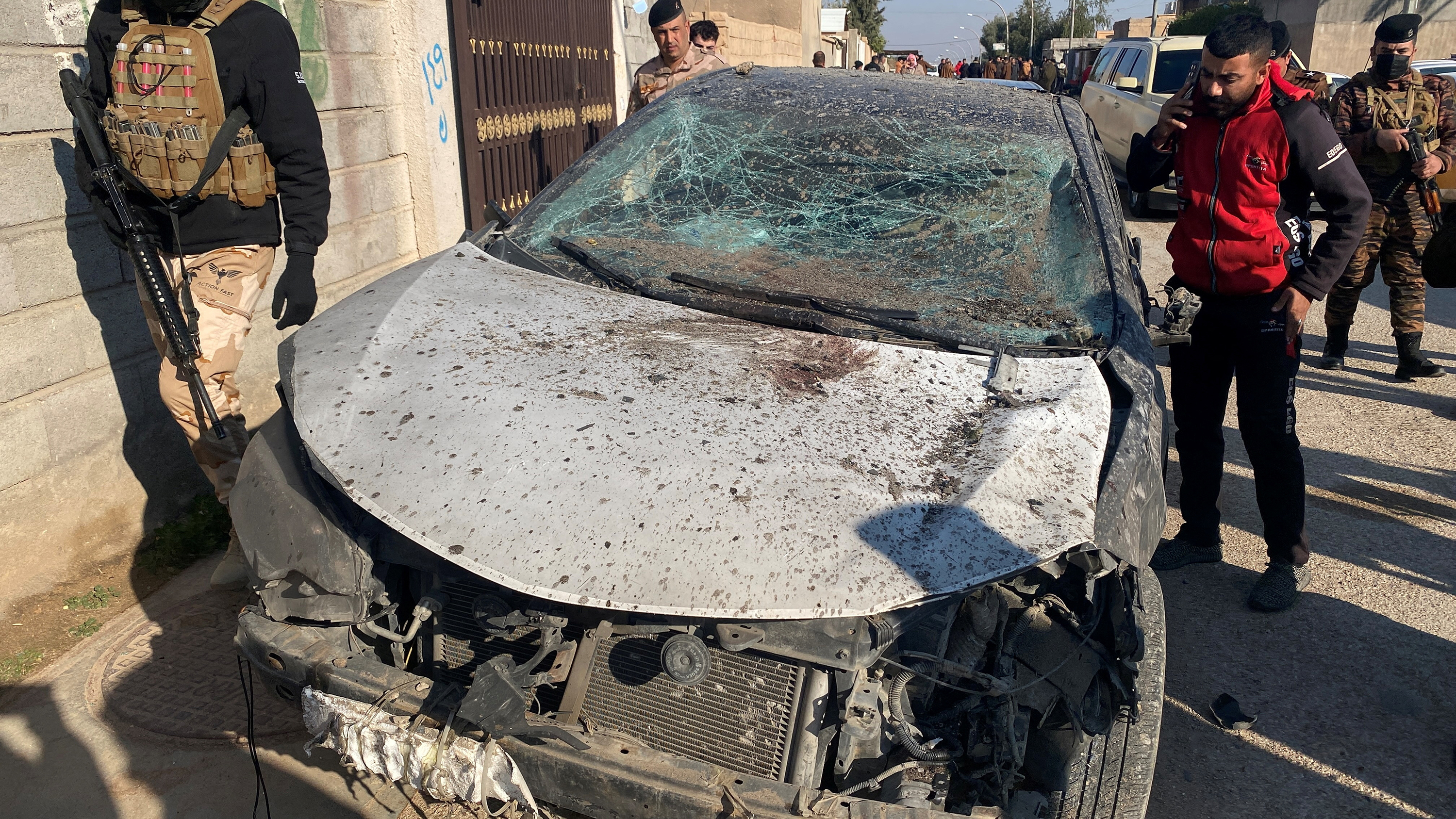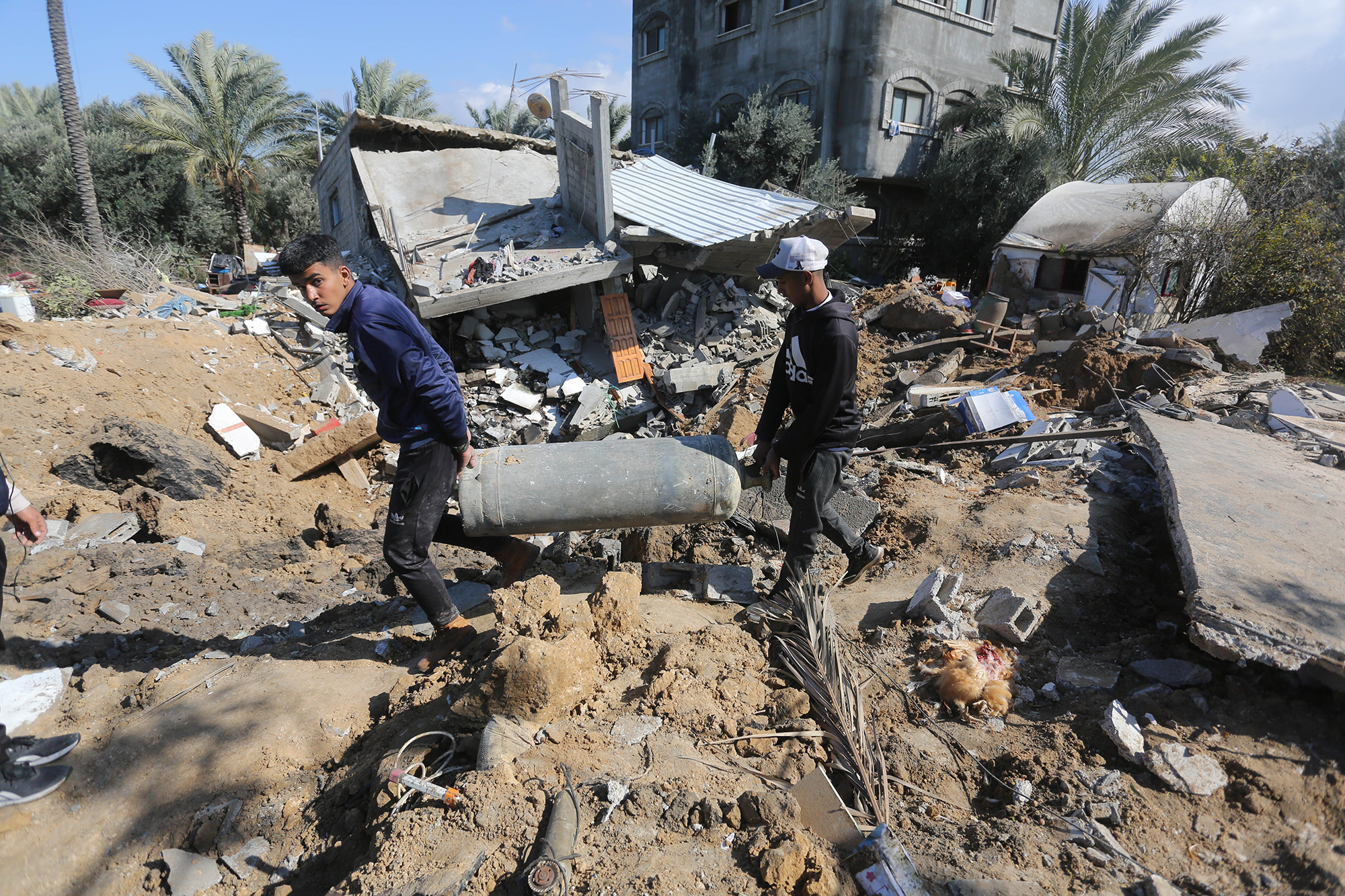It is late afternoon in the Middle East. Here's everything you need to know

People inspect a damaged car after a US airstrike in Al-Qaim, Iraq, on February 3. (Stringer/Reuters)
The United States struck 85 targets linked to Iranian-backed militias in Iraq and Syria on Friday, in response to a drone strike in Jordan that killed three American soldiers, as tensions stemming from the conflict between Israel and Gaza continue to spread to the region. .
President Joe Biden said adversaries would need to heed US warnings, while Syria said US strikes were “fueling conflict in the Middle East in a very dangerous way.”
Here's everything you need to know:
American attacks
Friday attack: The United States carried out large-scale air strikes on Friday against dozens of targets in Iraq and Syria, in response to a drone attack in Jordan. The United States described the attacks as “successful” and said they led to the deterioration of infrastructure. The Iraqi government said that the raids on Iraq resulted in the killing of at least 16 people, including civilians, and the wounding of 25 others. Meanwhile, the Syrian army said the strikes killed civilians and soldiers and caused “severe damage.”
It's just the beginning: These developments represent a major escalation in tensions between the United States and Iranian-backed groups that are attacking American bases across the region in protest against the Israeli war in Gaza. US Defense Secretary Lloyd Austin said the strikes were just “the beginning of our response,” adding that action “will occur at times and places of our choosing.” He added: “We do not seek conflict in the Middle East or anywhere else, but the president and I will not tolerate attacks on American forces.”
Anger in the Middle East: Both Syria and Iraq warned that retaliatory US air strikes would inflame conflict in the Middle East, with an Iraqi Armed Forces spokesman speaking of “potentially dire consequences,” while Iran’s Foreign Ministry condemned the strikes as a “strategic mistake” and warned of further instability. In the Middle East.
analysis: CNN's Nick Patton Walsh said the attacks were a relatively limited response to the worst loss of American military lives in the region in nearly three years. He said that the Biden administration faces “an almost impossible task: to strike with sufficient force to show its seriousness, but also to ensure that its opponent is able to absorb the blow without responding.” You can read more from Nick here.

People walk through rubble after the Israeli attack on Deir al-Balah, Gaza, on February 3. (Ashraf Amra/Anadolu/Getty Images)
Israel-Gaza
The number of bodies: The Palestinian Health Ministry in the Hamas-controlled enclave said on Saturday that Israeli raids killed at least 107 people and wounded 165 others in Gaza in the past 24 hours. The Ministry of Health added that a total of 27,238 Palestinians were martyred and 66,452 others were injured in Gaza since October 7. Many deaths occurred in the southern city of Rafah, where the United Nations warned that the situation was like a “pressure cooker.”
Condemnation letter: More than 800 officials from the United States and Europe signed a scathing criticism of Western policy toward Israel and Gaza, accusing their governments of possible complicity in war crimes. In a statement obtained by CNN, the officials said there was a “reasonable risk that our governments' policies are contributing to serious violations of international humanitarian law, war crimes, and even ethnic cleansing or genocide.”
Hamas demands for a ceasefire: Hamas and Islamic Jihad leaders spoke on Friday to discuss a proposal for a possible hostage deal and ceasefire, but maintained their position that they want a complete withdrawal of Israeli forces from Gaza. In a statement following the phone call between Hamas leader Ismail Haniyeh and Islamic Jihad leader Ziad al-Nakhalah, Hamas affirmed that “any negotiations will lead to a complete cessation of aggression.”

“Unapologetic tv specialist. Hardcore zombie trailblazer. Infuriatingly humble problem solver.”
